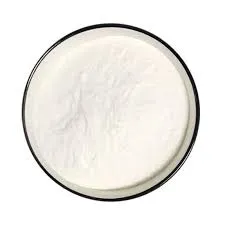
Sep . 05, 2024 06:57 Back to list
hydroxy ethyl cellulose uses
The Versatile Uses of Hydroxyethyl Cellulose
Hydroxyethyl cellulose (HEC) is a non-ionic, water-soluble polymer derived from cellulose, a natural polysaccharide. Its unique properties make it incredibly versatile, leading to its widespread application across various industries. From construction to cosmetics, HEC serves multiple purposes, enhancing product performance and user experience.
The Versatile Uses of Hydroxyethyl Cellulose
In the realm of personal care and cosmetics, hydroxyethyl cellulose is a popular ingredient due to its emulsifying and thickening properties. It is commonly found in products like shampoos, conditioners, lotions, and creams. HEC plays a vital role in stabilizing emulsions, ensuring that oil and water components mix effectively. This stability is essential for maintaining the uniformity and effectiveness of cosmetic formulations. Furthermore, HEC contributes to the smooth texture and feel of products, enhancing the overall user experience. Its ability to form a film on the skin also makes it an excellent choice for moisturizing products, as it helps to lock in moisture and provide a protective barrier.
hydroxy ethyl cellulose uses

HEC's applications extend to the pharmaceutical industry, where it is used as a suspending agent and a binder in tablet formulations. Its ability to maintain uniform particle dispersion in liquid medications ensures that active ingredients are delivered effectively. Additionally, HEC is employed in the formulation of gels and ointments, providing the necessary consistency and stability. With its biocompatibility, HEC is regarded as a safe ingredient in many pharmaceutical applications, making it an essential component in drug delivery systems.
In the food industry, hydroxyethyl cellulose serves as a food additive, offering thickening and stabilizing properties in various products. It can improve the texture of sauces, dressings, and dairy products, enhancing their sensory qualities. HEC also acts as a fat replacer, contributing to the mouthfeel and viscosity of low-fat and fat-free food products. Its use is permitted by regulatory authorities, making it a safe choice for food applications.
Finally, the agricultural sector benefits from hydroxyethyl cellulose through its incorporation in soil conditioners and seed coatings. HEC improves water retention in soils, which is crucial for sustainable farming practices in arid regions. Additionally, it enhances the adhesion of seed coatings, promoting effective germination and growth.
In conclusion, hydroxyethyl cellulose is a remarkable polymer with a diverse range of uses across multiple industries. Its unique properties, such as water solubility, thickening ability, and biocompatibility, make it invaluable in construction, personal care, pharmaceuticals, food, and agriculture. As industries continue to seek innovative solutions and improve product formulations, HEC's role is likely to expand, solidifying its status as a key ingredient in modern applications.
-
Versatile Hpmc Uses in Different Industries
NewsJun.19,2025
-
Redispersible Powder's Role in Enhancing Durability of Construction Products
NewsJun.19,2025
-
Hydroxyethyl Cellulose Applications Driving Green Industrial Processes
NewsJun.19,2025
-
Exploring Different Redispersible Polymer Powder
NewsJun.19,2025
-
Choosing the Right Mortar Bonding Agent
NewsJun.19,2025
-
Applications and Significance of China Hpmc in Modern Industries
NewsJun.19,2025







